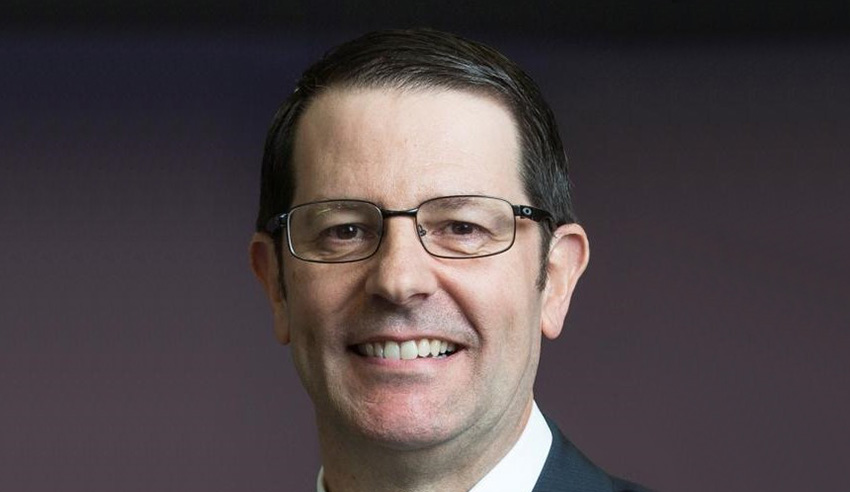Moving our desks from the office to home has rapidly changed the way the legal profession works, not just during COVID-19, but potentially, for the future, writes Professor Michael Legg.

Prior to the pandemic, lawyers meeting clients and appearing in court from home would have been considered absurd, even fanciful. But, with an estimated 2.6 billion people – or a third of the world’s population – living under some kind of lockdown or quarantine in March 2020, the absurd has now become reality.
These advantages are now being experienced by the majority, rather than the previous few, engendering greater discussion about how a lawyer will practise.
The pandemic made mobile technology and videoconferencing software apps such as Zoom and Microsoft Teams essential business tools. The International Legal Technology Association’s 2020 annual technology survey reported that in 2017, 5 per cent of respondents said they used Zoom for videoconferencing while in 2020 that figure was 71 per cent. Microsoft Teams saw a jump from 12 per cent to 48 per cent and Cisco Webex from 24 per cent to 30 per cent.
The mass adoption of these apps by almost everyone in the profession has resulted in broad-based upskilling. Lawyers, whether remote, regional, suburban or city based, agreed that they had gained a new way to communicate and be more responsive to client needs. Success in mastering this new technology should assist in encouraging lawyers to branch out and try other technologies that can assist their practice.
However, the use of videoconferencing software apps also introduced new challenges such as security and confidentiality. The most high-profile public example of such problems was the advent of “Zoom-bombing” – uninvited persons attending a meeting on Zoom to either surreptitiously listen in or to disrupt the meeting. For lawyers, the concern is that confidential and privileged communications may be accessed, including being recorded. Zoom has taken steps to improve security, but lawyers must be aware of the risks and address them.
Expect the etiquette around WFH and the way in which videoconferencing apps are used to evolve, just as when lawyers first started using email (remember the “reply all” faux pas). Will expectations arise as to when video and sound should be on or off? Are interruptions by pets and children welcome interludes or unwanted distractions? Maybe it depends on the type of meeting. There is also going to be a need to accommodate the “mixed meeting” where some attendees meet in-person and others participate through videoconference. Social norms will develop around this behaviour.
The use of WFH is also likely to vary from legal practice to legal practice, team to team and between individual lawyers. Lawyers at different times and for different tasks will find that WFH is preferred, or that another way of working, such as collaborating in an office or going to court, is a better way to get things done.
The law firms that get this flexibility right will have an advantage in talent acquisition and retention. New hires will want to know what the policy on WFH is. They will also want to know how training and professional development will operate. Law firms will have to balance the needs of the client, needs of the firm and the needs of the individual lawyer. This is not new, but it is likely to be more widespread.
WFH has created new challenges for mental health and wellbeing. People, including lawyers, need meaningful personal connections. The opportunity to build and maintain connections must be maintained. This is especially the case for the new lawyer who is just starting to build their professional network. Not just for business contacts, but to be able to share the ups and downs of life in the law.
Law firms also need to be able to build and maintain their culture, particularly among new lawyers and lateral recruits, as well as disseminate know-how in relation to practical skills. The office may need to be compulsory for some in-person training or team building events. But young lawyers undertaking tasks for the first time worry about how they will get guidance and feedback as they go. Equally the learning that comes from being in the room with the experienced supervisor for the sotto voce “side-bars” and picking up on how they do things are important developmental steps that WFH restricts.
Many lawyers will still want the camaraderie and social side of physical rather than virtual interactions. Team lunches and Christmas parties might be off the agenda in 2020 but they will make a comeback as ways to team build, foster firm culture and even provide opportunities for building trust.
If Australia manages to keep COVID-19 under control then the negatives aspects of WFH, such as isolation, should be able to be addressed through WFH being combined with working in the office and providing opportunities for lawyers to build connections and engage in professional development. WFH is highly likely to remain widespread even if the measures to suppress COVID-19 infections are lifted or lightened. How the legal profession will be structured in the future, especially as technology advances, is still unfolding and will remain the subject of much discussion.
Professor Michael Legg is the director of the Law Society of NSW (FLIP) Research Stream at UNSW Law. He will moderate an online panel discussion on Wednesday, 9 December, looking at the opportunities and challenges that WFH poses, and particularly, what 2021 will look like for the legal profession.